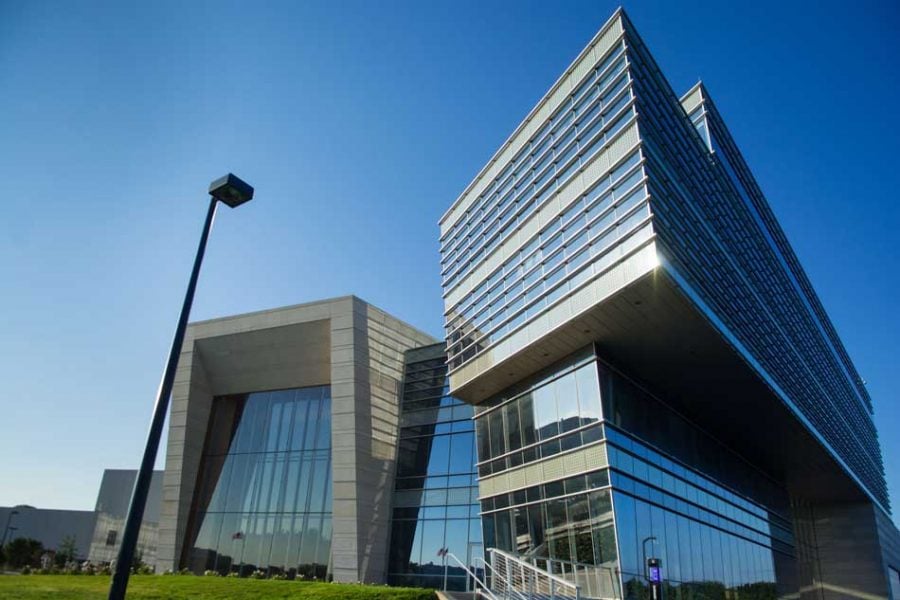Davóne Tines reimagines Mass through opera at Galvin Recital Hall
Daily file photo by Daniel Tian
The Bienen School of Music. Conductor Lidiya Yankovskaya will be the school’s convocation speaker this year.
March 31, 2023
Opera singer Davóne Tines presented a six-part concert reimagining Latin-language Catholic church practices Wednesday, with songs for each stage of the Mass.
The bass-baritone performed his latest work “Recital No. 1: Mass” at the Galvin Recital Hall on Wednesday and held a discussion of the performance Thursday.
Tines said he intertwined themes of humanity and spirituality, as well as elements of his identity as a Black and openly gay performer, throughout the program and recital.
“I’m basically queering the Mass,” Tines wrote in his program note. “Queering in the broad sense of bending it to my own understanding.”
Tines incorporated pieces from classic Western European works in his program, like J.S. Bach’s “Mache dich, mein Herze, rein,” as well as African American spiritual songs and original compositions like “VIGIL.”
Bienen Prof. Stephen Smith introduced Tines for the Thursday discussion, calling his performance remarkable.
“(Tines) is establishing himself as one of classical music’s most important and creative voices,” Smith said. “One cannot help but feel like he is just getting started.”
Smith said the recital exemplified Tines’ gifts in a range of musical styles.
Tines shared the process that led up to the creation of “Recital No. 1: Mass” during the discussion, touching on his creative journey from childhood to adulthood.
He said centralizing his upbringing throughout his creative process has allowed him to infuse his work with purpose.
“(Considering) how am I really honoring the truth of that in anything I do? That, for me, is a life practice,” Tines said.
For example, Tines said he explored what it meant to be a descendant of enslaved people by performing in the 2015 opera “Crossing.”
Tines also displayed clips of his other performances, such as 2018’s “The Black Clown” and 2020’s “VIGIL,” during his presentation.
During times of grief, Tines said his art acts as his “conduit.” That experience culminated in the conception of “Recital No. 1: Mass,” the product of four years of work, he said.
“My singing physicalized my need to scream,” he said.
At the end of the discussion, audience members asked Tines about the connection between personal lives and religious practice within his work.
Tines said educators should make intentional space for students to be known as individuals — like by giving them autonomy in their work for class — which he argued would create a generation of more expressive artists.
“I especially liked his assessment of how empowering students actually gets them to create better work, not assigning them arbitrary standards that are centuries old,” Weinberg freshman Raav Ghuman said.
Bienen dual-degree junior Greta McNamee said she was required to attend Tines’ concert as a voice and opera major. Afterward, McNamee said she was glad she attended because she found the Tines’ recital stunning.
McNamee said she admired Tines’ unapologetic approach to music making and couldn’t help but marvel at his technique throughout the entire concert.
She said the unorthodox setting of his concert within the Catholic mass seemed like a more personal way to structure a recital.
“The most impactful thing that I’m going to definitely be carrying with myself is contextualizing everything,” McNamee said. “Contextualizing any art you engage with and choose to perform within your own life and creating your connection with it.”
Email: [email protected]
Twitter: @beatricedvilla
Related Stories:
— Northwestern Opera Theater explores gender, yin and yang with ‘The Magic Flute’
— Northwestern Opera Theater hosts Midwest premiere of ‘In a Grove’


